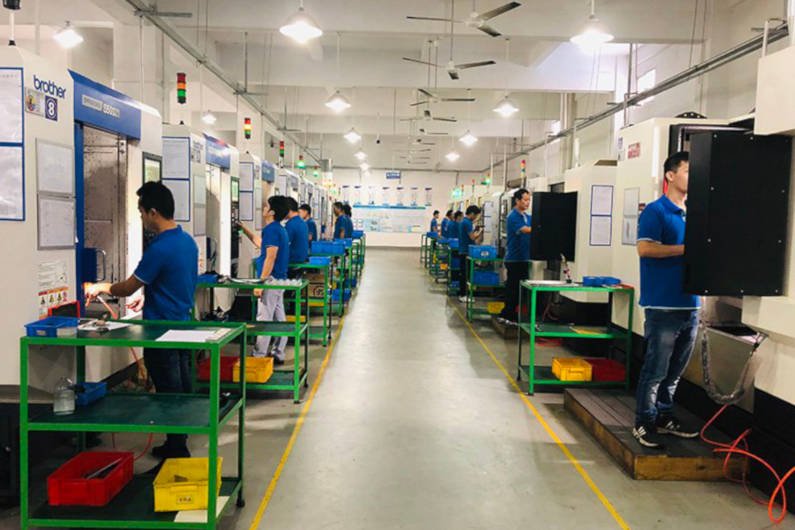Corrosion-resistant metals are essential components of many engineering projects. These special alloys provide scientists and engineers with technological solutions that maintain the integrity of their projects for long periods of time, even under the most extreme weather conditions or contact with water or various liquids.
Due to the ability to resist corrosion and oxidation, these specialized metals offer superior protection from adverse environmental conditions and extend the lifespan of a product.
Corrosion-resistant metals also require minimal maintenance over extended periods of time compared to unprotected metals, making them extremely cost-effective solutions. This article will discuss how to utilize the right corrosion-resistant metal for your application.
Table of Contents
What are Corrosion-Resistant Metals?

Corrosion-resistant metals are substances that provide a protective layer against corrosion and oxidation. These materials are a special class of metals designed to resist damage from environments that would normally be corrosive such as moist air, acid rain, and salt water.
They can range from alloys like nickel-chromium steel to synthetic composites, depending on the severity of the environment they will be exposed to.
Engineers often use corrosion-resistant metals in place of traditional iron or steel where harsh or extreme conditions are present. This property gives them the assurance that their designs will stand up to aggressive weather conditions and put less strain on maintenance and replacement costs over time.
Corrosion-resistant metals represent an important advancement in engineering, construction projects, and many other areas of industry.
What Makes a Metal Corrosion Resistant?

Corrosion resistance involves a range of factors, such as electrochemical reactivity, alloys, and coatings. For example, their heat treatment processes can influence how susceptible a metal is to corrosion. Alongside this, certain alloys and treatments can greatly enhance the metal’s resistance to corrosive agents.
Additionally, some oxidation-resistant coatings, such as zinc and nickel galvanization, minimize the impact of corrosion by creating a physical barrier between the metal and the environment. When all these elements are brought together, they create a strong combined corrosion resistance potential within the affected metal.
Types of Corrosion-Resistant Metals
Corrosion-resistant metals can be a crucial part of any engineering project. The most popular solutions are stainless steel, aluminum alloy, nickel alloys, and copper alloys. However, iridium is the most corrosion-resistant metal known to man.
Stainless Steel

W.carter, CC BY-SA 4.0, via Wikimedia Commons
Stainless steel is a popular corrosion-resistant metal due to its high chromium content, which makes it highly resistant to rust, staining, and corrosion. It is also available in a wide range of shapes, sizes, and grades depending on the application and environment.
Aluminum Alloys

Gt-man, CC BY-SA 2.0 DE, via Wikimedia Commons
Aluminum alloys are also popular for their resistance to corrosion but may have poor corrosion resistance in water environments. Aluminum alloys have a relatively low density and good formability for fabrication into various shapes and forms. They can be heat treated for increased strength when needed.
Nickel Alloys

Nickel-cobalt alloy, CC BY-SA 4.0, via Wikimedia Commons
Nickel alloys are known for their excellent corrosion resistance as well as a wide range of mechanical properties. Nickel alloys often contain chromium or nickel-iron precipitation-hardening stainless steels that offer superior hardness and strength even at elevated temperatures.
Copper Alloys

Finally, copper alloys offer excellent electrical conductivity with outstanding corrosion resistance in certain environments. Copper alloys are also lightweight and strong, which makes them great for applications such as marine equipment, piping systems, valves, pumps, fasteners, and more.
Common Applications for Corrosion-Resistant Metals
The most common uses for these materials include marine applications, food processing equipment, and aerospace components.
Marine Applications

Marine applications require metals and alloys that have superior resistance to corrosion from sea salt and other elements found in seawater. Stainless steel is a good choice for marine applications due to its good strength-to-weight ratio, good electrical conductivity, and excellent corrosion resistance.
Furthermore, stainless steel also offers a range of grades with increased corrosion protection, such as 316L or duplex stainless steel.
Food Processing Equipment

I, BrokenSphere, CC BY-SA 3.0, via Wikimedia Commons
Food processing equipment must also be able to resist the corrosive effects of food products like acidic liquids, oils, and grease. Stainless steel is a popular choice for these applications because it is easy to clean, resists corrosion, and has a long lifespan, even in harsh environments.
Nickel alloys are also suitable for food processing equipment due to their high-temperature strength and excellent oxidation resistance.
Aerospace Components

Aerospace components need superior levels of performance at extreme temperatures, from low temperatures on the surface to high temperatures in supersonic flight. Nickel alloys are often used in aerospace components due to their combination of high strength, wear resistance, fatigue properties, and oxidation resistance at both low and elevated temperatures.
Copper alloys may also be used for specific application needs, such as cryogenic plumbing systems or wiring bundles where their high electrical conductivity is needed.
How to Choose the Right Metal for Your Project: 3 Key Factors

When deciding on a corrosion-resistant metal, key considerations include the environment where it will be used, the metal’s form factor, and the cost of the alloy.
#1 Environment or Application
Knowing the environment or application where your metal will be used is an important step in selecting a corrosion-resistant metal. Different metals possess different levels of resistance to various corrosive environments, such as seawater, acidic liquids, and more.
Understanding the environment the metal must endure is key when evaluating what type of corrosion-resistant alloy you should use.
#2 Form Factor
The form factor of the metal also plays a role in choosing the right corrosion-resistant metal for your project. Many different types of alloys are available in sheet, bar, tube, or coil form, so deciding which one best suits your needs is necessary.
Additionally, maintenance considerations may come into play when deciding between sheet versus bar, so it’s important to consider how easy replacing pieces with new stock might be for future maintenance needs.
#3 Cost
Finally, cost should be taken into consideration when choosing a corrosion-resistant alloy for your project. Some metals can be very expensive due to their increased performance characteristics and availability, while other less expensive options may not offer the same level of protection from corrosive elements.
It’s vital to weigh cost versus performance when making this decision.
Working with the Best

Gensun specializes in providing customers with the necessary expertise to choose the right corrosion-resistant metal for their project. With decades of experience, Gensun can provide guidance on selection and performance to help customers make an informed decision when selecting a metal alloy that will suit their specific needs.
In addition, Gensun also offers CNC machining services so you can have your custom parts made to exact specifications with precision accuracy, no matter what type of metal or alloy you select. With these services, you can be sure that your project is built with quality components that are designed to last and hold up against even the harshest of elements.